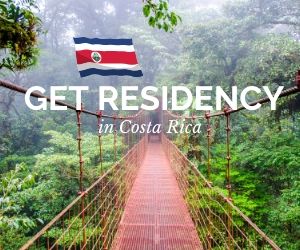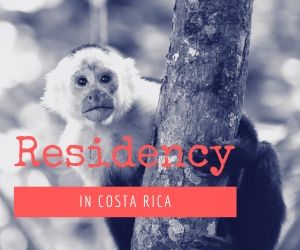|
interesting story in today's AM CR paper
I remember Brother Greengo making reference to novel covering some of the same topics (human smuggling) in one of his illustrious posts on a prior subject.
Chinese criminal gangs quietly build their empires
By the A.M. Costa Rica staff
Chinese criminals have infiltrated Costa Rica and are setting up their networks quietly and without much notice from police agencies. The presence of Taiwanese and mainland criminals is not new, but until now most of the illegalities remained within the growing Chinese communities in San José and Puntarenas.
Investigators have been more concerned with Colombian and Mexican cartel operations here, although occasionally the ransom kidnapping of a Chinese businessman made the news.
A case this week exposed a complex web of illegality that allowed crooks to hijack a container full of name-brand alcohol from inside the secure docks in Limón. Agents recovered some of the loot Tuesday in Santa Ana and said the property had a Chinese owner.
Chinese gangs here usually are involved in extortion, kidnappings and human trafficking, so they do not compete with the drug cartels who are more interested in moving cocaine.
The main interest of the United States is in human trafficking because the Chinese gangs have a long history of moving illegal immigrants north from temporary locations in Latin America.
In the late 1990s, Interpol identified 18 local Chinese gangs that were linked in Central America under the Fa Yen Triad, according to a 2003 report by the Federal Research Division of the Library of Congress. Much of the information came from the Central Intelligence Agency. Taiwanese nationals in Guatemala established a people-trafficking route connecting Taiwan with Southern California, where other Taiwanese nationals had established a destination point, the research division said.
Panamá also is considered a major trafficking point.
Mario Zamora, the then-immigration chief, reported that he was approached in 2006 with a $2.5 million bribe offer to allow 500 Chinese to get visas. He turned down the offer, but there has been no reports of prosecution in the case.
In fact, local law enforcement seem to be unaware of the growing Chinese gang influence. Raids like the one Tuesday are exceptions. A $1.5 million wiretapping setup that is being constructed would seem to be of little use against Chinese gangs if no police officers spoke Chinese.
The diplomatic cables revealed by Wikileaks illuminate efforts by Costa Rican officials to stop an attempt by a Chinese criminal gang to send 300 youngsters from that country to here. The embassy said the Ch*ldren were to be indentured servants here for 10 years.
Then-ambassador Peter Cianchette wrote the cable. He attributed much of the information to Zamora.
According to the then-ambassador, Chinese gang members sought out Costa Ricans with Chinese surnames and offered them money to use their name. Then a visa was sought for a Chinese immigrant on the grounds of family reunification.
The case was covered heavily in newspapers at the time, but the ambassador reported that Chinese police also reportedly uncovered a how-to manual for Chinese clients applying for Costa Rican visas. He also noted that a foreign ministry
counterfeit goods
A.M. Costa Rica file photo
Much of the counterfeit CDs and DVDs on sale along San Jose's streets come from Hong Kong criminal gangs.
official had been fired on the allegation that he tried to bribe consular officials at the Costa Rican embassy in China. The fired official had Chinese ancestors.
"Two other non-official Costa Ricans of Asian origin are also under investigation, though the lack of a judicial cooperation agreement between Costa Rica and China might limit the information that could be used in court if charges are brought against the individuals," said Cianchette. The case has not yet come up in court.
But the method does point out the ability of Chinese gangs to target innocent Chinese and suck them into the illegalities.
A legislative committee sought to investigate the Chinese human trafficking in 2009, but that idea seems to have vanished with the change in lawmakers the next May.
Chinese culture seems to provide openings for criminality. Many Chinese love to gamble, and gang members frequently are enlisted to collect debts. Some of the kidnappings of Chinese residents have been linked to such collection methods. Some successful ransom kidnappings are not reported.
Like most immigrant groups in a strange land, newly arrived Chinese seem to have their own gambling parlors and places to socialize, many unknown to police officers. There is a settlement of Chinese along Paseo de los Estudiantes in San José, and the municipality has plans to convert the area in to a Chinatown for tourism. The arrival of the first Chinese to Costa Rica was in the middle of the 19th century, and there are many divisions among the Chineses and Chinese-Tico populations. Costa Rica's national hero, Franklin Chang DÃaz, enjoys Chinese heritage.
Said the research arm of the Library of Congress:
Chinese groups have been extremely efficient in creating loose, flexible multinational structures that often are linked with legitimate business enterprises; in exploiting weaknesses in the law enforcement systems of individual countries; and in coercing otherwise law-abiding members of the Chinese communities of many countries to carry out specific tasks such as supporting illegal
_________________
The difference between a Sea Story and a Fairy Tale is that a Fairy Tale starts out 'Once Upon a Time..' and a Sea Story starts out 'This is no Shit...'
(export version only, some restrictions may apply, some assembly required, not valid where the sun don't shine...
if you live in the states of Poverty, Darkness or anywhere outside of The Blessings of Civilization Trust, Inc...other rules may apply)
|









